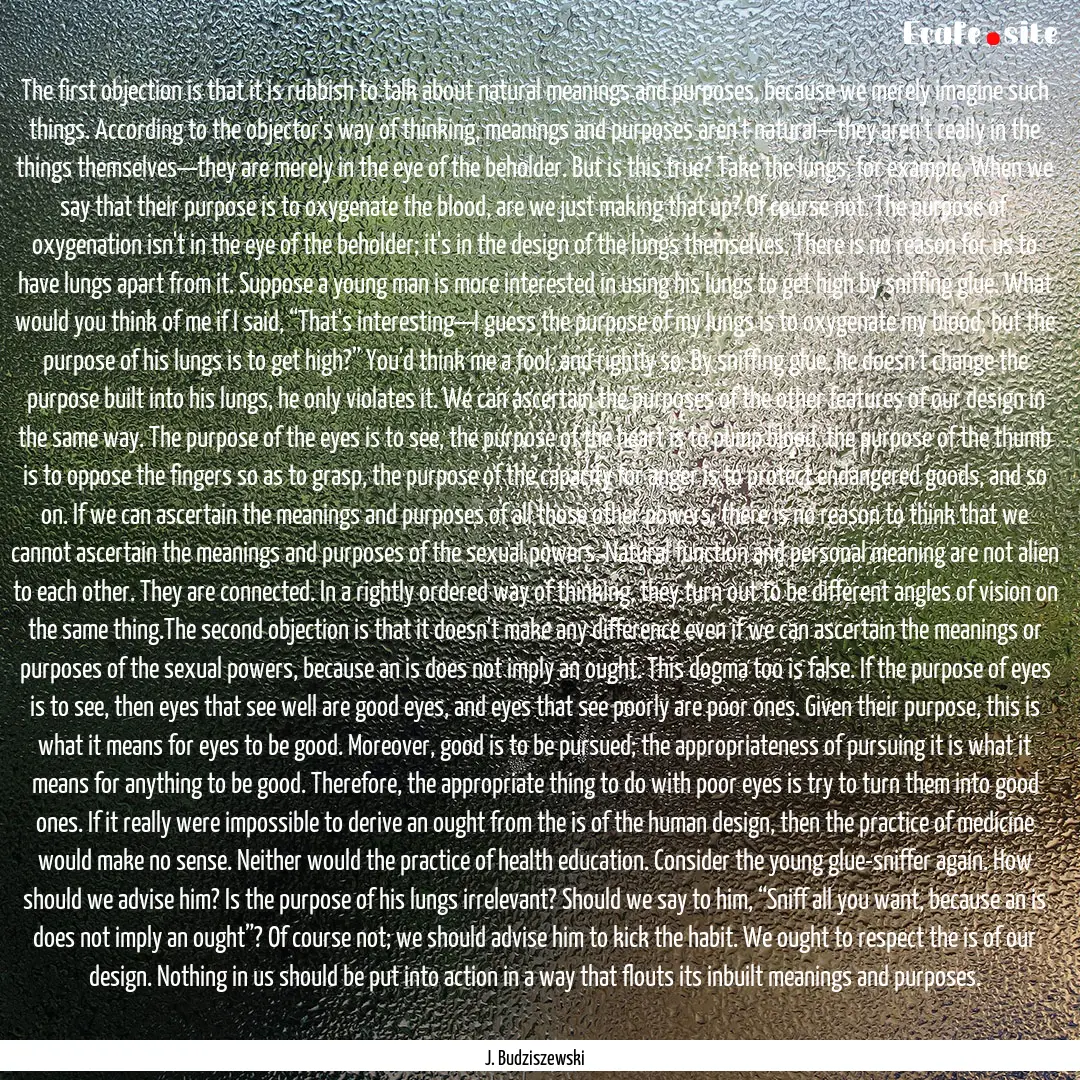
Report, if you have a problem with this page“ The first objection is that it is rubbish to talk about natural meanings and purposes, because we merely imagine such things. According to the objector's way of thinking, meanings and purposes aren't natural—they aren't really in the things themselves—they are merely in the eye of the beholder. But is this true? Take the lungs, for example. When we say that their purpose is to oxygenate the blood, are we just making that up? Of course not. The purpose of oxygenation isn't in the eye of the beholder; it's in the design of the lungs themselves. There is no reason for us to have lungs apart from it. Suppose a young man is more interested in using his lungs to get high by sniffing glue. What would you think of me if I said, “That's interesting—I guess the purpose of my lungs is to oxygenate my blood, but the purpose of his lungs is to get high?” You'd think me a fool, and rightly so. By sniffing glue, he doesn't change the purpose built into his lungs, he only violates it. We can ascertain the purposes of the other features of our design in the same way. The purpose of the eyes is to see, the purpose of the heart is to pump blood, the purpose of the thumb is to oppose the fingers so as to grasp, the purpose of the capacity for anger is to protect endangered goods, and so on. If we can ascertain the meanings and purposes of all those other powers, there is no reason to think that we cannot ascertain the meanings and purposes of the sexual powers. Natural function and personal meaning are not alien to each other. They are connected. In a rightly ordered way of thinking, they turn out to be different angles of vision on the same thing.The second objection is that it doesn't make any difference even if we can ascertain the meanings or purposes of the sexual powers, because an is does not imply an ought. This dogma too is false. If the purpose of eyes is to see, then eyes that see well are good eyes, and eyes that see poorly are poor ones. Given their purpose, this is what it means for eyes to be good. Moreover, good is to be pursued; the appropriateness of pursuing it is what it means for anything to be good. Therefore, the appropriate thing to do with poor eyes is try to turn them into good ones. If it really were impossible to derive an ought from the is of the human design, then the practice of medicine would make no sense. Neither would the practice of health education. Consider the young glue-sniffer again. How should we advise him? Is the purpose of his lungs irrelevant? Should we say to him, “Sniff all you want, because an is does not imply an ought”? Of course not; we should advise him to kick the habit. We ought to respect the is of our design. Nothing in us should be put into action in a way that flouts its inbuilt meanings and purposes. ”

J. Budziszewski
From : On the Meaning of Sex



